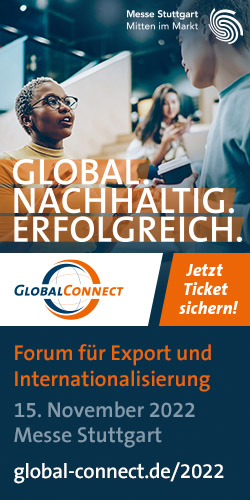Expanding into international markets by following customers.
Dr. Stefan Wolf is the Chairman of the Management Board at ElringKlinger AG, a global automotive supplier with about 9,500 employees and 44 locations worldwide. He also serves as the honorary president of the employers’ association Gesamtmetall.

The digital networking of global locations means a further boost for the ongoing internationalization of ElringKlinger AG.
How is the sentiment at ElringKlinger given the challenging economic situation of the nation?
The overall sentiment at ElringKlinger is cautiously optimistic, despite facing challenges. We are particularly affected by the rising prices of raw materials, especially steel and aluminum, which are our primary materials. Additionally, we are experiencing issues in our supply chain. However, I make a conscious effort to foster a positive atmosphere among our workforce. We have faced tough times in the past, although not as severe as the current situation, but we have always managed to improve. I believe that will be the case this time as well.
Do these challenges affect the transformation process and your future plans?
Not significantly. Our extensive experience in fuel cell technology spanning over 20 years and the establishment of a dedicated battery technology and electromobility business unit more than a decade ago position us well for the future. We also maintain a strong presence in combustion engines, which I believe will remain relevant for a long time. In the event of declining demand for combustion engines, we are prepared to introduce substitute products. Fortunately, we already have orders and promising projects in these areas. It is crucial for us to generate profits now to continue investing in future technologies and successfully navigate the transformation process. Although the current situation presents challenges with cost increases and additional burdens, we are determined to quickly emerge from any upcoming recession and achieve positive returns that will drive our transformation efforts.
“We have also had difficult times in the past. They have then always gotten better again. That will also be the case this time.”
Does the view of global markets also drive you forward on the subject of hydrogen?
Certainly, we have a global perspective and firmly believe in the future of this technology. Even in Germany, we observe a shift in attitudes and growing importance of the hydrogen issue, particularly within the coalition parties. Fuel cells are essential for various transportation sectors. From flying to large cruise ships and trucks, fuel cells are indispensable. While small cars may not commonly use fuel cells, I anticipate their utilization in SUVs and luxury vehicles. It’s worth noting that our focus extends beyond road vehicles, as we explore applications in trains. We are actively engaged in significant projects, including our collaboration with Airbus since 2020, where we develop fuel cell stacks for passenger aircraft. Overall, the broad range of compelling applications highlights the considerable relevance of fuel cells.
On the subject of dependencies on China: Is “decoupling” a solution?
I believe that the idea of “decoupling” is highly unrealistic. It would be a significant mistake to turn away from China, especially for the automotive industry, as it represents the largest single market. China serves as both a major sales market and a crucial source of supplier relationships, with parts coming from China or being supplied to China. Therefore, decoupling is an entirely unrealistic perspective. Such a move would likely trigger an unprecedented global economic crisis due to China’s status as an exporting nation and its deep interconnections worldwide. However, it may be necessary to reassess supply chains and consider geopolitical developments when making future investments. Past mistakes have been made by neglecting such considerations. For instance, the unexpected aggression by Russia towards Ukraine demonstrated the need for greater caution. We strive to maintain a balanced supplier sector, incorporating both German and European suppliers. Nonetheless, completely retracting a globally-oriented company like ElringKlinger is entirely impractical in my view.

Following customers into international markets.
Dr. Stefan Wolf is Chairman of the Management Board of ElringKlinger AG,an internationally active automotive supplier with around 9500employees and 44 locations worldwide, and honorary president of the employers’ association Gesamtmetall.


